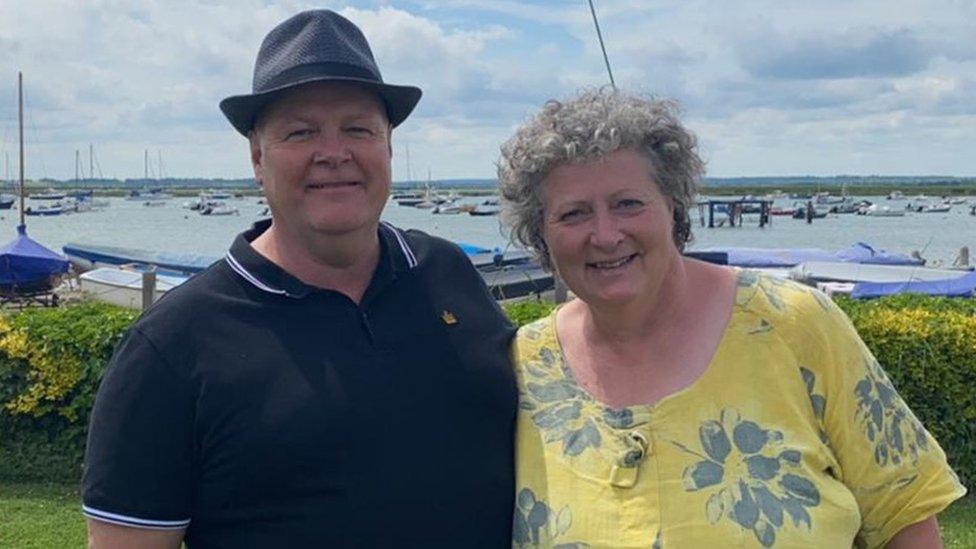Fentanyl poisoning: Luke D'Wit guilty of murdering Essex couple
- Published
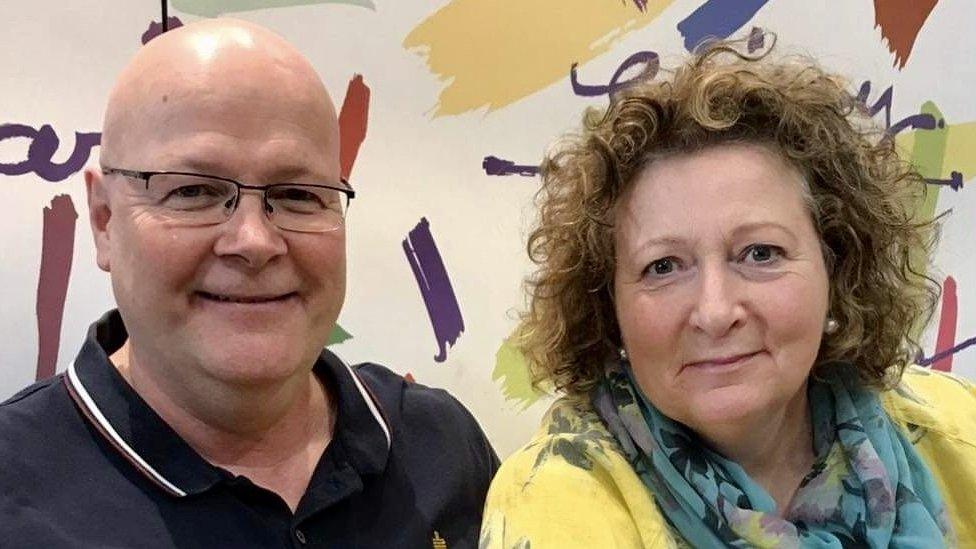
Luke D'Wit poisoned Stephen and Carol Baxter to death by lacing their medication with the opioid painkiller fentanyl
A man has been found guilty of murdering a married couple he worked for by drugging them with the opioid painkiller fentanyl.
Stephen Baxter, 61, and his wife Carol, 64, were found dead at their home in West Mersea, Essex, in April 2023.
Luke D'Wit, 34, had rewritten the couple's will so he could seize control of their business after their deaths, Chelmsford Crown Court heard.
D'Wit, of Churchfields, West Mersea, will be sentenced later.
Det Supt Rob Kirby, head of major crime at Essex Police, said D'Wit was "without doubt one of the most dangerous men I've ever experienced in my policing career".
He said: "I have absolutely no doubt that had he not been caught, he would have gone on to commit further murders."
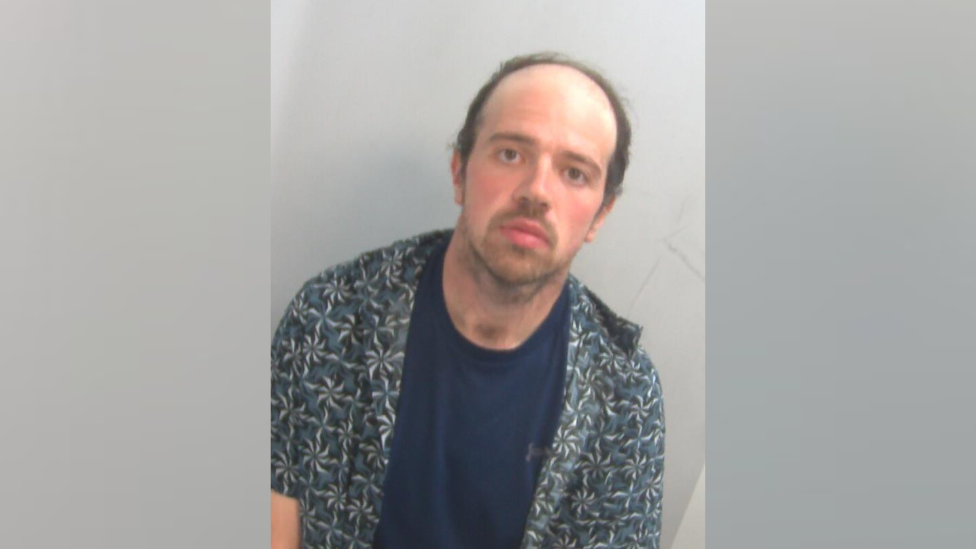
Luke D'Wit met the Baxters after helping to design a website for their shower mat business
The trial heard D'Wit had poisoned Mr and Mrs Baxter by lacing their medication with fentanyl to benefit financially from their deaths.
He first met the Baxters between 2012 and 2013 after he was asked to build a website for their shower mat company, Cazsplash.
Over the years he became more involved in family life and helped Mrs Baxter manage her thyroid condition, Hashimoto's disease.
The couple's daughter Ellie, 22, said her parents became "irritated" that D'Wit was so frequently at their home in Victory Road and they thought the computer science graduate was "nerdy weird".

Det Supt Rob Kirby read a statement outside Chelmsford police station alongside Ellie Baxter and her brother, Harry Baxter
Tracy Ayling KC, prosecuting, told jurors D'Wit had 80 electronic devices and some of them had been used to create more than 20 false personalities "to manipulate" Mrs Baxter and - at times - Miss Baxter.
She said D'Wit posed as a doctor on one of the devices and offered her advice "with no clinical basis", while also pretending to be fellow Hashimoto's sufferers.
Miss Baxter told the trial: "There was just this set of rules we had to follow.
"I think mum got a bit desperate and she got to a point where she would do anything to get better."
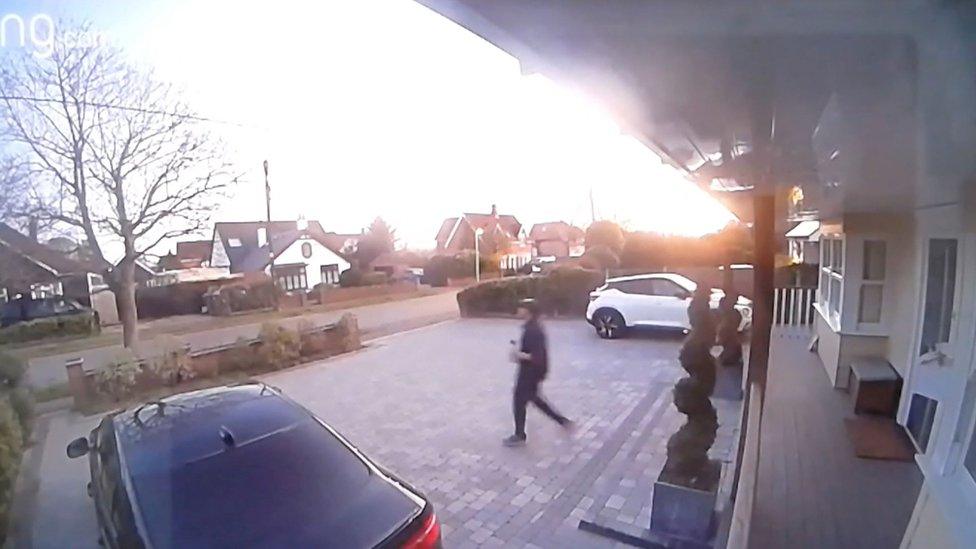
A CCTV camera on the Baxters' house showed him leaving their property after administering them with a lethal dose of fentanyl
The court heard how D'Wit had photos on his phone of Mr and Mrs Baxter dead in their armchairs in the conservatory of their home.
Ms Ayling said they were taken by D'Wit who had installed a "mobile security surveillance application" on his phone.
This allowed him to monitor a camera from another device where, at some point between Good Friday and Easter Sunday, he was "watching them die", she said.
During the trial, the defendant gave evidence from a wheelchair, which Ms Ayling alleged was an effort to attract sympathy from the jury.
The prosecutor said following his arrest, a bag containing both opened and unopened fentanyl patches was found at D'Wit's home, which he shared with his mother.
"There can only be one purpose for having these and that's to fool someone into believing they were taking a proper dose when they were actually taking four times the amount," she added.
D'Wit was recorded by a police officer after the bodies of the couple were found in their Essex home
Metal tacks, which police believe were the same ones found during a scan of Mrs Baxter's stomach when she was alive, were also discovered in the bag.
Miss Baxter arrived at the property on Easter Sunday and found her parents dead inside the conservatory.
Toxicology reports later showed fentanyl was a factor in both deaths, with carbon monoxide poisoning quickly ruled out and no evidence to suggest either death had been caused by the couple themselves.
In a statement following D'Wit's conviction, Miss Baxter said: "My mum and dad are dead. But they didn't just die. They were taken from me and my young children.
"My mum lost her freedom, her will, her ability to function two years prior to her murder due to her illness.
"An illness no-one could help with or understand because it was contrived by Luke D'Wit.
"Mum felt so alone and lost and there was nothing I could do other then give her my shoulder to cry on and cuddle her."
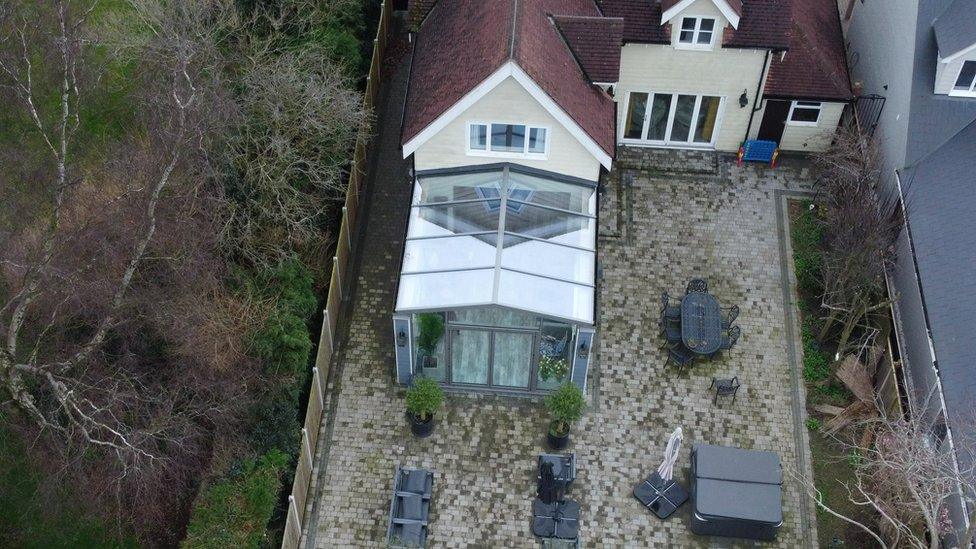
The couple were found dead in the conservatory by their daughter
Harry Baxter, Mr and Mrs Baxter's son, said the family's lives would "forever be punctured by the gravity" of D'Wit's actions.
"Luke D'Wit took what we all held most sacred and found a way to extract it for himself," he said.
"I feel great sadness looking back on the videos of [Mrs Baxter] when she was acting strangely and seeing him in the background giggling and smiling, knowing he's the one inflicting this pain as we were all dolls in his dollhouse."
During his defence, D'Wit claimed the fake personalities messaging Mrs Baxter were Stephen Baxter's idea.
The defendant said: "The actual mechanics was me, but it was instructions from Stephen."
D'Wit denied there was a "sinister" motive for the false identities, and said they were used by Mr Baxter to improve his wife's health and their relationship.

Follow East of England news on Facebook, external, Instagram, external and X, external. Got a story? Email eastofenglandnews@bbc.co.uk or WhatsApp 0800 169 1830
Related topics
- Published15 March 2024

- Published26 February 2024
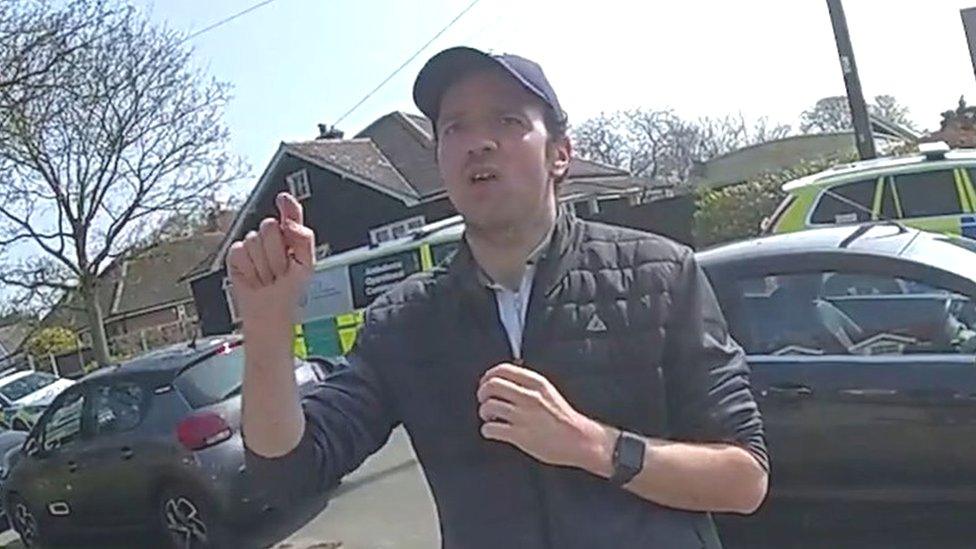
- Published21 February 2024
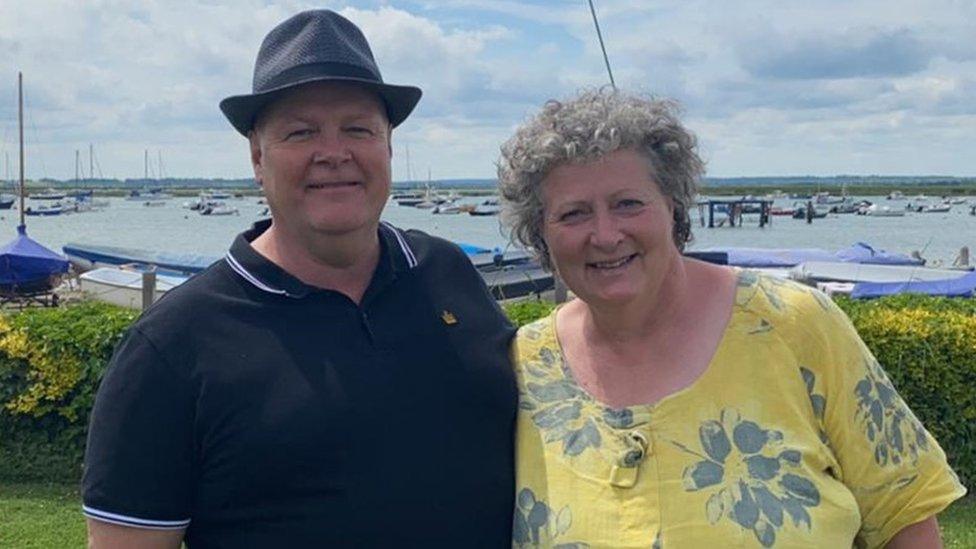
- Published20 February 2024
